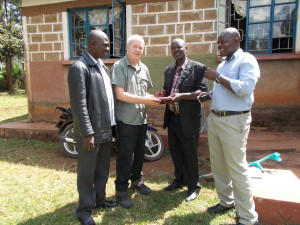It started with an invitation to speak at a conference in Bangalore on Software Testing in July 2013. For various reasons the trip included 2 weekends which I wanted to use wisely. Before the trip I was introduced to Raj, of a small Christian organisation called The Fishermen Trust. His organisation helps various schools around the Bangalore area and in Tamil Nadu state amongst other work.
Ahead of the trip Raj and I had a couple of discussions by Skype and email about some of the challenges these schools face. In terms of technology many of the schools had at least one computer for the children to use, some had over twenty computers in a classroom. However, none of these computers were being used by the pupils. The computers were typically old computers donated or scavenged from corporations, with an old version of Microsoft Windows installed. However they’d not been prepared or commissioned for the schools to use, the teachers lacked the skills, understanding or knowledge of how to use them at all, and in most cases there were major problems with the mains power.
I managed to obtain around 100 copies of an excellent software known as Zoombinis. The Zoombinis is educational software devised as various games. Each game requires thinking skills and presents problems to be solved to ‘save’ small creatures called Zoombinis. There are at least five variations of Zoombinis software, most of our copies are of Zoombinis Mountain Rescue.
We agreed to spend both Saturdays visiting schools so I could get involved first hand and learn as much as practical about ways to help the schools and the pupils. I’ll cover the school visits and the findings in additional blog posts here.
About the Zoombini Games
There are three titles in the Zoombinis series of games. Of these, the Logical Journey was the original title and the best in my view. Several companies acquired the original game and released refreshed versions of the title, sadly their changes did little to improve the product. The newer versions and games are in wider circulation, the original being from 1996 is hard to find these days. The original is the most tolerant in terms of working on a variety of computers.
Here are links to Wikipedia articles about each of the games.
http://en.wikipedia.org/wiki/Zoombinis_Mountain_Rescue
http://en.wikipedia.org/wiki/Logical_Journey_of_the_Zoombinis
http://en.wikipedia.org/wiki/Zoombini_Island_Odyssey




